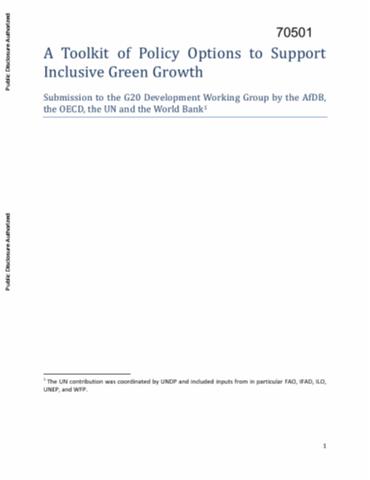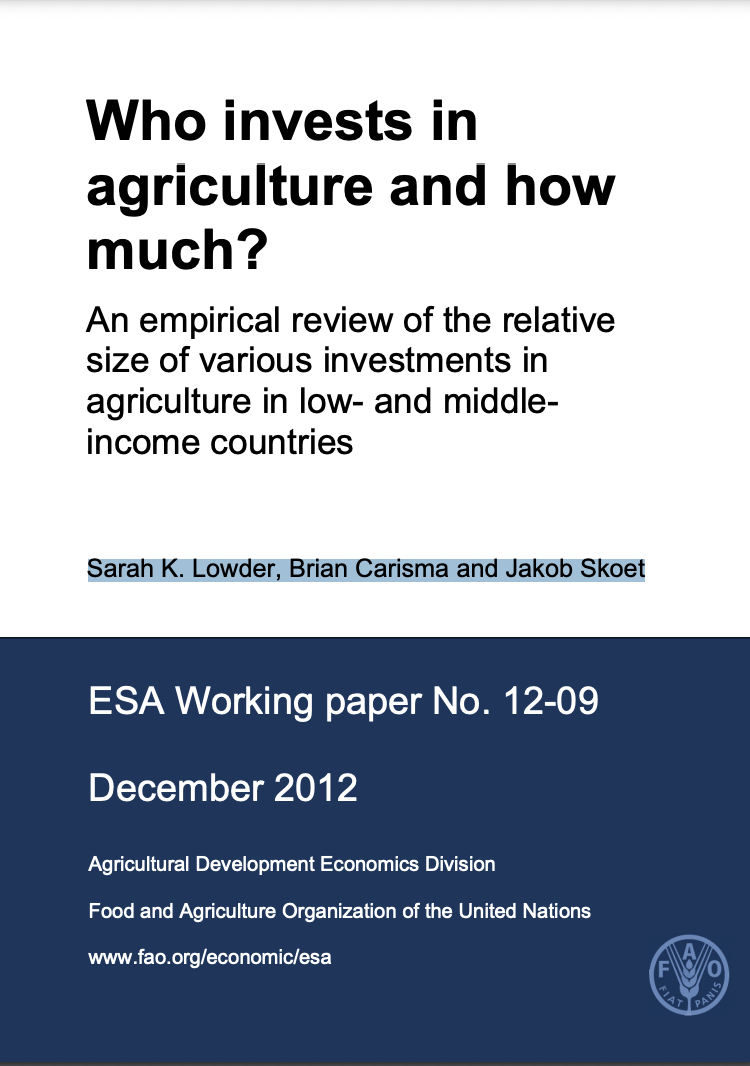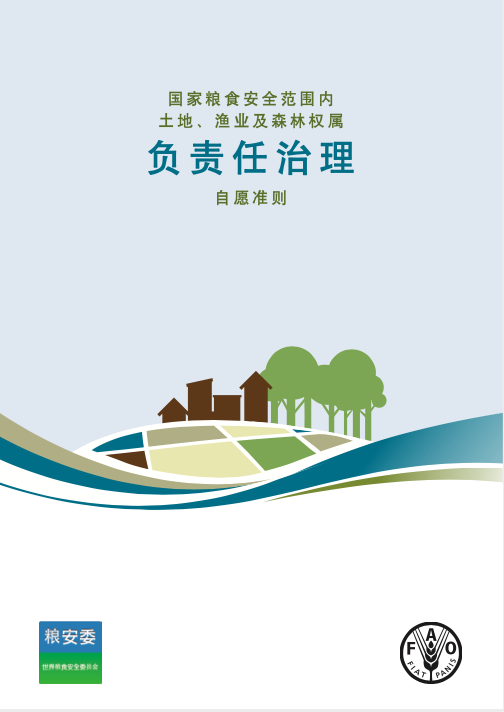Focal point
Location
The Food and Agriculture Organization of the United Nations leads international efforts to defeat hunger. Serving both developed and developing countries, FAO acts as a neutral forum where all nations meet as equals to negotiate agreements and debate policy. FAO is also a source of knowledge and information. We help developing countries and countries in transition modernize and improve agriculture, forestry and fisheries practices and ensure good nutrition for all. Since our founding in 1945, we have focused special attention on developing rural areas, home to 70 percent of the world's poor and hungry people.
Members:
Resources
Displaying 2336 - 2340 of 5074A Toolkit of Policy Options to Support Inclusive Green Growth
In 2012, the Mexican Presidency of the G20 introduced inclusive green growth as a cross-cutting priority on the G20 development agenda. The second meeting of the G20 Development Working Group (DWG), hosted by the Government of the Republic of Korea, took place in Seoul the 19th and 20th of March 2012. As agreed during the first DWG meeting, this second meeting focused on the priorities for their presidency in the first half of 2012: infrastructure, food security and inclusive green growth (IGG).
Trends and Impacts of Foreign Investment in Developing Country Agriculture: Evidence from case studies
Large-scale international investments in developing country agriculture, especially acquisitions of agricultural land, continue to raise international concern. Certainly, complex and controversial issues – economic, political, institutional, legal and ethical – are raised in relation to food security, poverty reduction, rural development, technology and access to land and water resources. Yet at the same time, some developing countries are making strenuous efforts to attract foreign investment into their agricultural sectors.
(24 September 2012) Report of the Special Rapporteur on the situation of human rights in Cambodia
This 2012 report is an assessment of the human rights impact of economic land concessions (ELCs) and other land concessions and major development projects in Cambodia. It includes not only an analysis of concessions pertaining to agroindustry (for example, rubber, sugar, acacia and cassava plantations), but also to concessions for mining, oil and gas, forestry, and concessions for the purposes of tourism, property development, and large scale infrastructure, such as hydropower dams.
Who invests in agriculture and how much?
Investment in agriculture is widely recognized as crucial for economic growth, poverty reduction and improved food and nutrition security. Although several estimates have been made of how much investment is needed in agriculture to achieve production or food security goals, no source to date has attempted to estimate the total amount of public and private investment that is actually made in agriculture. This paper does so using the most up to date and comprehensive international datasets available.
Voluntary Guidelines on the Responsible Governance of Tenure of Land, Fisheries and Forests in the Context of National Food Security (Chinese version)
The primary goal of the "Voluntary Guidelines for the Responsible Governance of Tenure of Land, Fisheries and Forests within the Scope of National Food Security" is to achieve food security for all and to support the progressive realization of the right to adequate food within the scope of national food security.











